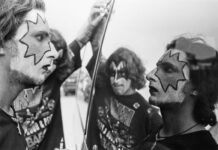There’s something just as inevitable as death. And that’s life.
Charlie Chaplin
~~~~~~~~~~~~~~~~~~~~~~~~~~
After “Bad pupils, ingenious adults” we go on with some people who either didn’t go to school at all or they went for so little time that they didn’t learn anything. Yet, everyone in their respective field affected the world to such an extent that it is not far-fetched to say that they moulded it – with the power of their mind alone.
~~{}~~
Thomas Edison went to school for three months when he was eight years old. He was at the bottom of the class and the teacher didn’t like him at all.
Edison’s father believed that his son was dumb (more than likely, it was him who was not particularly intelligent).
One day the teacher called him in the class “addled”. Thomas, who wasn’t a byword for obedience, stormed out of the class and told his mother flat out that he would never go back to school. And so he did (schooling was not compulsory in 1855).
He was studying at home and his mother became his teacher. She could show him only the basics.
When he became 19 years old, Edison wrote missives with no punctuation. This may not strike us as weird in Ulysses of Joyce, but what sort of impression would it make if someone sent us a letter without commas and full stops?
Excluding punctuation, young Edison revealed a great interest in reading. All day long he was reading Shakespeare, Dickens and everything else he could get his hands on. One day his mother gave him the School of Natural Philosophy to read and the inventor Edison was born.
He set up a tiny laboratory at the basement of the house and conducted experiments all day long.
When he was twelve years old, he assembled all on his own a telegraph device and he also made an electric mousetrap. But he figured out that he needed money to improve his laboratory and went out looking for a job.
He landed one at a nearby town. He had to travel three hours daily by train to get there. Edison used this time to his advantage to read and earn money by selling fruits, nuts and candies.
Pretty soon he started selling his newspaper to the passengers! He bought from a second-hand dealer a manual printing press and on his way to work he was writing, typesetting and printing a small newspaper about the itineraries of the trains along with some political news. On his way back, he was selling it.
Edison kept it up (earning money and investing it on his laboratory) and did some of the most important inventions: the microphone, the light bulb, the Kinetograph, the electric light generator.
In 1882, when he was 35 years old, set in operation the first power plant in New York.
Twenty-five hundred patents bear his name – all of them punctuated. Let’s bring to mind his most famous quote: “Genius is one percent inspiration, ninety-nine percent perspiration”.
~~{}~~
Another “uneducated” man was Abraham Lincoln (come to think of it, was Daniel-Day Lewis a good pupil?)
Lincoln set free the then slaves of America with Emancipation Proclamation. That’s why he was murdered three years later.
Abe was the son of a lumberjack and never went to primary school, not even for a year. But while he was working as a submissive to a landowner, he was taking advantage of every single free moment to learn how to read (he was reading mostly newspapers).
When he became twenty-six years old, he started reading legal bibliography and two years later he achieved to acquire the permission to practice law.
During his entire political career, his opponents were sneering at his humble origins and lack of formal education, but Lincoln never felt inferior about that.
~~{}~~
We move from the field of inventions and politics to literature where we will get to know two of the greats who were also self-taught.
The first one is one of the most beloved writers since the Adventures of Tom Sawyer and Huckleberry Finn are best sellers the last 150 years.
Mark Twain (his real name was Samuel Langhorne Clemens) was characterized as a hyperactive child and were he born in our time he would have been fed with drugs to the gills. His mother and his teacher would have done it willingly, since it was impossible for little Sam to stand still for more than a second.
He went to school for a few weeks only.
When he was twelve years old – just when he had learned to read – his father died and Clemens was forced to find a job. He did everything he came by from one end the America to the other. He worked at a steamboat and that’s where he got his nickname from (mark twain=two).
He also worked at a printer’s shop and shortly after he took over the editing of a small agricultural newspaper of 50-100 readers.
Twain began to write the news with his distinct humour that characterized his books. He used to say, for instance, that the weather was perfect to prune the potato trees.
His newspaper was going places and pretty soon he started writing articles for other newspapers, too.
He did travel reportage from all over the world and when his books were published he became famous and gained global recognition.
When he turned 67 years old, the hyperactive child that was poorly educated became a professor in the University of Oxford and Missouri.
~~{}~~
One more “unqualified” man who became one of the most important novelists of all times was Charles Dickens.
He went to school until the age of 11 but that was long enough to become acquainted with horror as he described it on David Copperfield.
He wrote about his teacher, Mr. Creakle, who probably took delight in beating his pupils:
“I really wonder, when I look back in my past, what a start for a life, to be humiliated by such an incompetent and audacious person”.
When he turned 11 years old, Charles had to leave school to take care of his five younger siblings and began working at a shoe-polish factory since their parents were uninvolved.
Shortly after that, the whole family was arrested and incarcerated in a debt prison (soon in Greece, too).
Only Charles managed to avoid prison and he was left in a room alone with a box of books. He used to read Robinson Crusoe and Gulliver’s travels and was dreaming to write something of this magnitude.
In the end, he outshone them.
~~{}~~
The most impressive case of self-realization is probably the one of Charles Spencer who as Charlot became the most recognizable figure of the 20th century (along with Adolf Hitler, separated only by four days)
Charlie never went to school. During his childhood, his sole ambition was, as he himself said: “How to satisfy my hunger”.
He was living in London with his half-brother in unimaginable poverty. His father, an actor who became an alcoholic, had abandoned them long before. (Just recently became known that he had gypsy origins, but it is not verified).
Early on his mother, a former pianist who worked as a needlewoman, fell apart and she was taken to an asylum and the children found themselves in an orphanage.
Charlie’s son wrote:
“The children in the orphanage never had enough food or warm clothes. For their crime, which was none other than being poor, were being treated like criminals”.
Chaplin stayed there quite long enough. When he grew up, and with the intervention of his father, he landed his first roles as an extra at the theatre. When he earned some money, he made his way to America.
There, at the age of 21, his inadequate education began nagging him.
He wrote: “I wanted to know, not for the love of knowledge, but as a defense against the world’s contempt for the ignorant”.
The first book he bought was an English grammar and then an English – Latin dictionary. Do you think he memorized them within a couple of days? Far from it, the books remained pretty much unopened in a case.
The next one he bought was Schopenhauer’s The World as Will and Representation. Charlie said that he was reading it for forty years, revisiting it every now and then from page one, never comprehending it thoroughly.
That was the education that Charles Spencer, the man who changed the cinema and made so many people at every corner of the earth to cry or laugh, ever got.
~~{}~~
We will round off the list of the “uneducated” people with a man who had found his vocation since he was eight years old – and until he realized his dream he learned sixteen languages on the side.
When Heinrich Schliemann was eight years old, he saw in a magazine a representation of Troy in flames and he set his mind on finding it.
His father tried to convince him that Troy was a mythological place – that was common belief of the time. But the child meant business.
When he was fourteen years old, and having being taught only the basics from his father, Schliemann became an apprentice at a merchant.
He figured out that he would need a lot of money to carry out the excavations, so Heinrich got a new job at a ship which would take him to America, the “Land of Opportunity”.
Unfortunately the ship sank off a Dutch coast and Heinrich stayed there. He worked as a clerk at a trading company and it was there where his linguistic genius became apparent.
Within three years he was able to speak and write: Dutch, English, French, Spanish, Italian and Portuguese.
Shortly after, he found himself in St Petersburg where he learned Russian and began trading indigo dye, saltpeter, sulfur et al.
At the age of 26 he was a millionaire and set sail for the USA. Until he got there (six weeks) he learned Polish and Swedish.
He earned even more money by trading gold and when he had made enough, he set to realize his childish dream: to discover Homer’s Troy.
The last languages he learned were Arabian and Greek. He travelled in the East (Far, Middle and Near) and he finally settled in Greece (he married also a Greek).
When he became 48 years old and with Homer’s Iliad as his main source, he began excavations in Asia Minor. It didn’t take him long to find his “dream city” (and some others, too).
~~{}~~
Some other “uneducated” were the Swedish Alfred Nobel who was forced to abandon school when he was nine years old and sell matches to make a living, the Scotsman Andrew Carnegie who worked in textile factories and also as a stoker and Benjamin Franklin who went to school for only one year and a half.
~~~~~~~~~~~~~~~~~~~~~~~~~~~~~~~~~~~
I kept you in the class a bit longer, I know.
Next, we will learn about top-men, both in school and life; and we will get to know the triad of the October Revolution: Lenin, Trotsky, Stalin.
~~~~~~~~~~~~~~~~~~~~~~~~~~~~~~~~~~~~~~~~~~~~~~~~~
(In press: José de Sousa Saramago was also barely educated. He was the grandchild of landless peasants and son of a policeman and when he finished primary school, he enrolled at a technical school. When he graduated, he began working as a car mechanic for two years.
Now, how he pulled off to write one of the most important novels of the 20th century and create an absolute personal writing style on the side, it is something that only Saramago could explain us. Or maybe, not even himself.
Life is inevitable and unpredictable.
–
Special thanks to Alex del P who pointed out the case of Saramago.
~~~~~~~~~~~~~~~~~~~~~~~~~~~~~~~~~~~~~~~~~~~~~
(I read about the stories of the uneducated people in Gerhard Prause’s book Genies in der Schule).








